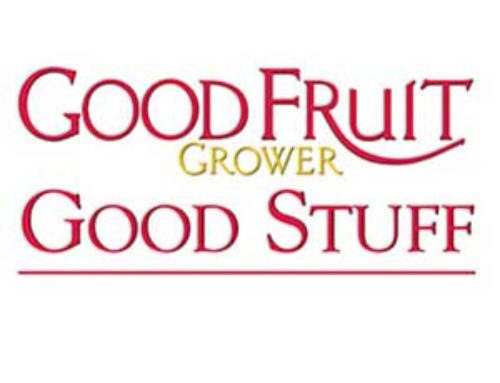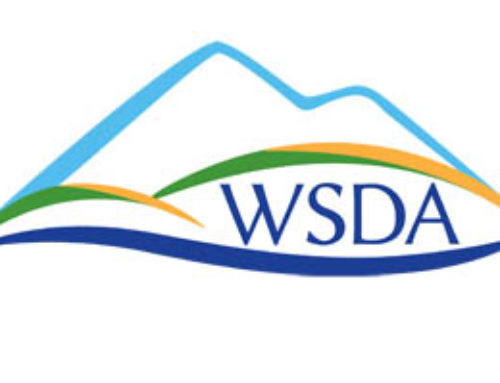
In our roles as produce safety educators, we understand that there can be an overwhelming amount of information to take in as it relates to FSMA’s Produce Safety Rule (PSR). To help you prepare, we have highlighted some resources below to help with training and implementation of food safety practices on the farm.
The most important provision of the PSR, in terms of education, requires at least one supervisor on the farm who has completed food safety training under a standardized curriculum recognized as adequate by the U.S. Food and Drug Administration (FDA). The Produce Safety Alliance (PSA) has developed a standardized curriculum approved by FDA and provides a certificate of training compliance through the Association of Food and Drug Officials (AFDO). As growers prepare for a PSR inspection, they must make sure that at least one supervisor on their farm has that certificate from AFDO that shows the completion of a full day of food safety training developed by the PSA, which is delivered through several local organizations.

The Washington State Tree Fruit Association (WSTFA, www.wstfa.org) and the Washington State University Produce Safety Program (WSU, foodsafety.wsu.edu/) offer PSA Grower Trainings in English and Spanish across the state during the training season (late fall and early winter). A PSA online training which complies with the regulation is also available through eCornell. Online courses can be completed from the participant’s home or office, with a commitment of approximately 10 hours per week for three weeks and the completion of six assignments. Details about registration and the cost of online trainings can be found at the PSA website: producesafetyalliance.cornell.edu.
FSMA’s PSR also requires growers to train their workers on food safety practices and the importance of health and personal hygiene, as well as document any training. Every worker on the farm must be able to recognize symptoms of foodborne illness and must receive training relevant to their job. Workers who harvest produce require specific training to identify risks of contamination before and during harvest: to never harvest dropped produce or any product contaminated with feces, and to always use clean harvest tools and containers.
Several educational materials have been developed to help growers with their training efforts:
WSTFA’s orchard food safety video has been produced in English and Spanish to teach tree fruit growers and their employees about Good Agricultural Practices, co-management of natural resources and food safety practices in the orchard, and it also recognizes the great work Washington growers are already doing to provide safe tree fruit in our state.
WSTFA’s training materials include posters to remind employees to implement food safety practices at their workplace every day and are especially effective when they are placed in high-traffic areas like restrooms or break areas. They can also help reinforce food safety training during review sessions or at new employee orientation. WSTFA’s posters for orchards were designed to emphasize principles of worker hygiene and food safety during orchard operations and harvest.
WSTFA designed a poster for farm visitors, to help growers comply with the PSR requirement for informing visitors about farm food safety policies, areas that can’t be accessed, and the importance of handwashing while visiting.
Three posters for packing houses remind employees of practices that will help reduce the transfer of pathogens from people and objects to the fruit, known as cross-contamination. Training videos for packing houses, in English and Spanish, can help with training on topics such as proper hand-washing, glove use, cross-contamination, cross-contact, hygienic zoning and environmental monitoring.
WSU, in collaboration with other land grant universities, developed food safety training posters which focus on both production and postharvest-related training topics and are available in English and Spanish at bit.ly/WSU_Posters.
Food Safety Resource Clearinghouse (developed by the Northeast Center to Advance Food Safety) is a site where state extension programs, nongovernment organizations (NGOs), and state agencies have centralized educational resources. There are currently more than 425 items in the clearinghouse, with more added weekly (uvm.edu/extension/necafs/clearinghouse).
Growers must provide all the resources that support the adherence to food safety practices on the farm, including a sufficient number of toilets, toilet paper, soap, clean water, paper towels, garbage cans, first-aid kits and containers to catch wastewater. It is important that operators communicate food safety requirements to any individuals who may be responsible for monitoring or verification activities. Through clear communication, all employees should understand their role in the execution of key policies related to the PSR.
Growers should review PSR expectations for farms prior to the start of the season. Record-keeping forms are a place where many growers may start. The PSA has developed a fact sheet that discusses records required for the PSR (bit.ly/PSA_Records). The PSR has some nuanced requirements when it comes to certain records, such as record review for training records. So, this is a great resource to use to assure that your records meet ALL requirements of the PSR.
—by Faith Critzer and Jacqui Gordon Nuñez
Faith Critzer is an associate professor and produce safety extension specialist at Washington State University. Jacqui Gordon Nuñez is director of training, education and member services with the Washington State Tree Fruit Association. Contact her at jacqui@wstfa.org for more information or access to resources.
Related:
—Tynan: Lessons learned from year one of FSMA farm inspections






Leave A Comment